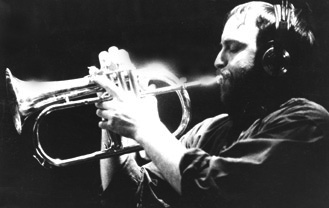Bio
Ed Sarath divides his time between teaching, scholarship, performing, composing, recording, speaking, and spearheading leadership initiatives that aim to bring an expanded vision of creativity and consciousness development to musical study and education at large.
Sarath is a professor of music in the Department in Jazz & Contemporary Improvisation, of which he was the founding faculty member and chair (1987-2007), at the University of Michigan School of Music, Theatre & Dance (SMTD). He is also director of U-M’s Program in Creativity and Consciousness Studies, an interdisciplinary network of colleagues interested in the inner workings of creativity and its foundations in consciousness. He founded and serves as president of the International Society for Improvised Music, an organization devoted to promoting awareness of the importance of improvisational studies in musical training and improvised music in today’s diverse world.
His most recent book, Improvisation, Creativity, and Consciousness: Jazz as Integral Template for Music, Education, and Society (SUNY/Albany, 2013), is the first to apply to music principles of an emergent, consciousness-based worldview called Integral Theory to music. His prior book, Music Theory Through Improvisation: A New Approach to Musicianship Training (Routledge, 2010) is based in his design of an innovative approach to core curriculum musicianship training that he has taught for 20 years. He is a co-author of a book called Creativity, Diversity, and Integration (Routledge, 2016) which follows his work as lead author of the report of the College Music Society Task Force on the undergraduate music major. He is co-editor of a collection of essays called Contemplative Approaches to Learning and Inquiry (SUNY/Albany, 2014). He designed the BFA in Jazz and Contemplative Studies, the first degree program at a mainstream academic institution to include a significant meditation and consciousness studies component. He founded and serves as president of the International Society for Improvised Music.
In addition to the above books, his writings appear in Oxford Handbook of Critical Improvisation Studies, Journal of Philosophy of Education, Innovative Higher Education, Journal of Music Theory, Oxford Handbook for Research on Music Education, International Journal for Music Education, Music Educators Journal, Jazz Research Papers, Jazz Educators Journal, Jazz Changes, Harvard Law School’s Negotiation Journal, Columbia Teachers College’s Educational Record, UCLA Higher Education Research Institute’s online journal, Newsday, and Ultimate Reality and Meaning.
His compositional work spans diverse musical horizons and ensemble types. His large ensemble jazz compositions are featured on his recording New Beginnings, featuring the London Jazz Orchestra playing his large ensemble compositions and his solo flugelhorn work. His music has been performed across the U.S., Europe, and South America. Previous recordings include Timescape, Last Day in May (Konnex, Berlin), and Voice of the Wind (Owl, Paris), which feature a host of internationally renowned artists as side-personnel, including Karl Berger, Joanne Brackeen, Mick Goodrich, David Liebman, Billy Hart, Cecil McBee, Harvie Swartz, and Marvin Smitty Smith. His work Brahma, Vishnu, Shiva for 90-voice choir, string orchestra, and jazz soloists represents his bridging of diverse stylistic horizons.
Sarath has presented master classes in improvisation at music schools and conservatories around the world. He delivered the keynote address at the first meeting of the Society for Consciousness Studies, has addressed several hundred leaders of music schools at annual meetings of the National Association of Schools of Music, and is a frequent speaker at conferences and symposia around the world. Recent travels include appearances in Melbourne, Shanghai, Helsinki, and Lisbon.
He is a fellow of the National Endowment for the Arts (three-time NEA fellow, twice in performance, once in composition), the American Council of Learned Societies, the Ford Foundation, the National Center for Institutional Diversity, and the MacDowell Colony. He is the recipient of the Harold R. Johnson Diversity Award at U-M.

